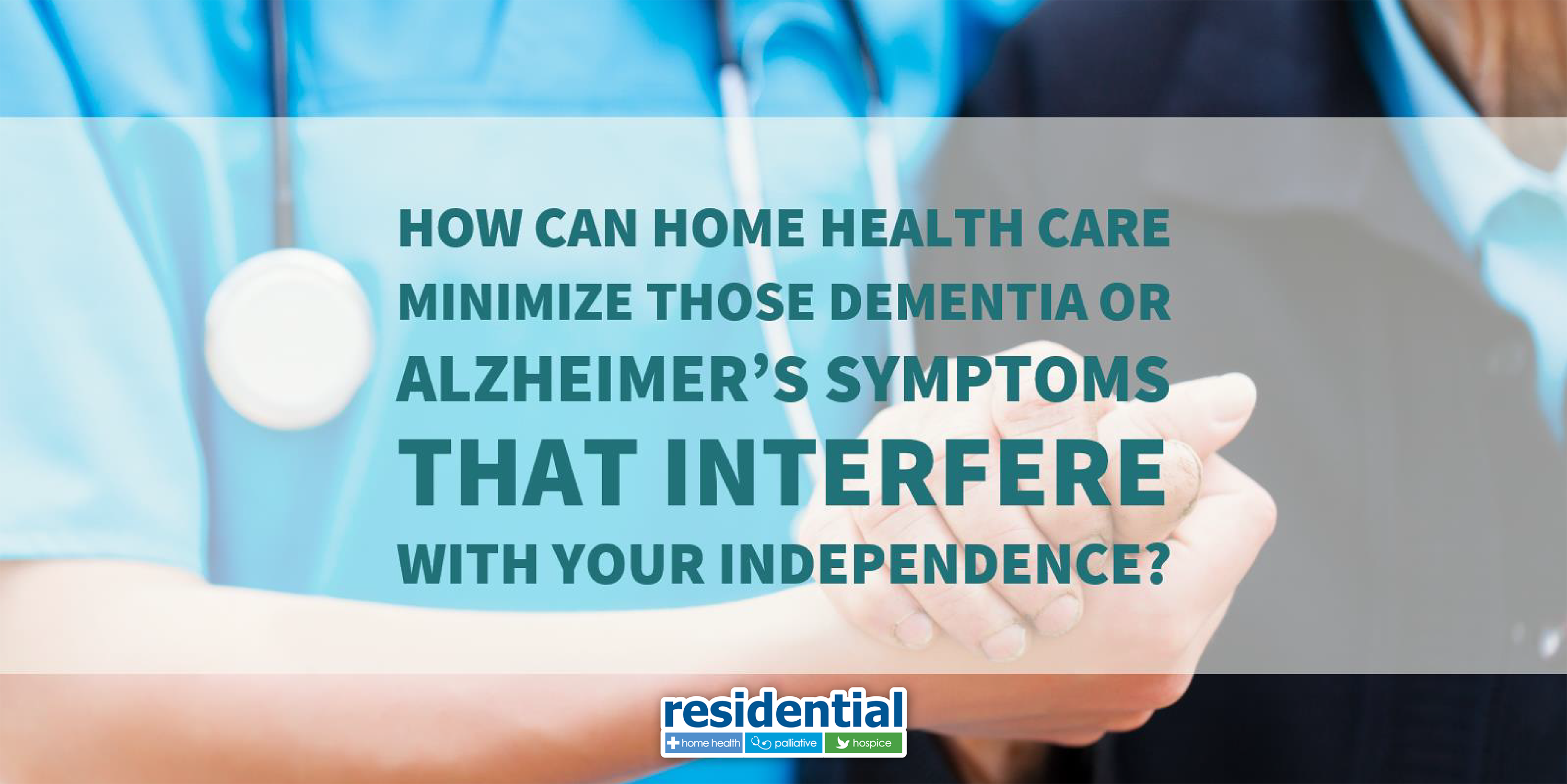
As we age, the risk of cognitive diseases such as dementia and Alzheimer’s becomes increasingly relevant. Dementia symptoms reveal themselves in the form of slowed motor skills, worsened memory, and difficulty speaking, and without intervention, these can progress rapidly. As a result, addressing and treating them proactively is the key to slowing progression alongside maintaining your independence. That’s where home health care comes in. Residential Home Health’s MindCare program is specifically tailored to provide patients with strategies for living with these diseases while working to help keep independence in the home as long as possible.
Although there are medications and methods to slow the progression of dementia, there is no cure. Lanny Butler, MS, OTR says it is vital to recognize the stages of these diseases to begin proper treatment as soon as possible. Motor skills and memory are often the first to be affected, but with further progression, the patient can experience increased anxiety, incontinence, and the threat of wandering. These progressed symptoms are the ones that can really jeopardize your independence due the safety and self-care risks they pose. Butler recommends visiting your health professional at any sign of abnormality or change in your cognitive state. If something is feeling off or not right, it’s better to check it out rather than to let dementia potentially progress before treatment even begins.
Residential’s MindCare program can help you remain cognitive, mobile, and independent.
Residential’s MindCare program utilizes the patient’s residual memories and familiarity to maintain independence in the home. At home, for example, locating the bathroom and using familiar fixtures is second nature, which can help with continence management. MindCare offers strategies and adaptations for patients and caregivers to navigate challenges like communication, wandering, and home safety. Such support in a familiar environment, tailored to patients’ own needs and preferences, can set them up for success with activities of daily living and better symptom management.
It is possible to remain cognitive, mobile, and independent late into our lives even while living with dementia, but doing so depends on early recognition, intervention, and support right in the home. Ask your physician if you are concerned about dementia risk for yourself or a loved one, or download Residential’s guides on common concerns with dementia and independence.
Residential Home Health professionals are trained to help patients and caregivers cope with the symptoms of dementia and Alzheimer’s while tailoring programs to address the specific needs of you or your loved one. Call 866-902-4000 to speak with a Home Care Specialist about those home health care services, and be sure to ask about Residential Home Health’s dementia and Alzheimer’s specific program, MindCare.
{{cta(‘b516b1b4-6da9-4cdc-80e0-af320a60aaa8’)}}

